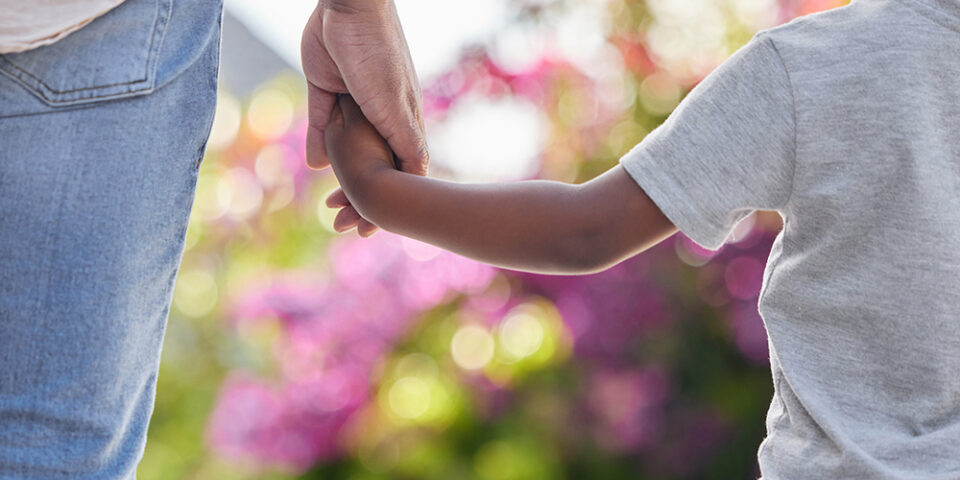How to help your child be more independent
As a parent, you probably want your kid to grow into a self-sufficient, independent adult. But are you sabotaging this goal by doing too much or trying to solve all your kid’s problems? Psychiatrist Brittany Peters, MD, explained what you as a parent can do to help your child be more independent.
How do I know if I’m a helicopter parent?
“It’s important to understand that helicopter parenting is born of a good place,” Dr. Peters said. “It’s born of a desire to make sure our child feels comfortable throughout their growth and development.”
But this desire to help can interfere with your child’s development.
Helicopter parenting starts with a child who’s anxious about what they can and can’t do. The parent may also be anxious about what the child can and can’t do, and so they begin to overcompensate and give the child what they need before letting the child go through the natural steps of trying to figure out or solve the problem.
“The child needs some disappointment and failure to have the context of how to navigate through difficult situations,” Dr. Peters said. “That’s really a good thing even though it may feel awkward to witness it or to experience it.”
If you struggle with that, try to catch yourself when you’re over functioning for the child and ask for support. Ask someone if it seems like you’re overdoing it and listen to their feedback.
If you think you might lean toward helicoptering, ask yourself, is your child able to do what they should be able to do independently at this age? That may be a good indicator for whether you’re over functioning for your child.
How can I help my child who’s anxious about completing a task?
“Your job is not to make your child not anxious,” Dr. Peters said. “Your job is to teach the child to manage anxiety … to increase their skill set for managing anxiety and to seek out the appropriate resources if they need help managing it beyond what they personally are able to do.”
Normalize their reaction instead of criticizing their reaction. Emphasize that it’s normal to be anxious when you’re faced with a task that you want to perform well at.
If you feel like your child’s anxiety has reached a level that requires additional support, reach out to a professional. A counselor can provide specific strategies, for example, for generalized anxiety or social anxiety which can manifest themselves at different developmental stages.
When is it okay to let your child stay home alone after school?
“Every kid develops on their own timeframe, so you want to look at core areas of their functioning,” Dr. Peters said.
Are they able to be safe in the environment by themselves and are they able to be responsible for what is in the environment? For example, if they have a younger sibling, is the child able to respond if something were to happen that wasn’t planned?
Also, look at cognitive and emotional readiness. Can they think through decisions? How does the child respond when normally challenged in supervised environments? These are good indicators for what they’re prepared to do independently.
Dr. Peters said it’s best to start gradually.
“A good way to start when you want to help your child be more independent is to pop over to your neighbor’s house or make a quick errand, and you’d have a backup plan, always, in case you were not able to come back as you originally scheduled. Also, your child should know what to do if you don’t come back when you said you were planning to be back.”
How can parents best manage their kids’ use of technology?
More and more kids have smartphones and access to social media, but are they ready for this type of independence?
“It’s important to remember that if you give your child a device, you’re responsible for their use of that device,” Dr. Peters said. “Don’t assume that a child’s chronological age translates into a higher level of maturity, or discretion or judgment.”
If you’ve determined your child is developmentally ready for a cell phone or social media, here are some tips to keep them safe while you help them to be more independent:
- Set parameters around use. Parents should make an informed decision about when and how their child is ready to access their device or social media.
- Define and discuss limitations around use. Have ongoing conversations about what your expectations are. “We all expect children to violate boundaries and test limits because that’s their nature as adolescents,” Dr. Peters said, “but we don’t want to pave the way for them by just giving them a phone and telling them to be responsible.”
- Check to see that those limitations are being followed. If you find a violation, try to not overreact. It’s better to say, “This is not what we talked about. What do you think?” Then, come together to create a positive solution, so that the child is not shamed but also understands the level of accountability they’re responsible for as they’re having increasing freedom. That’s a good template for how you will treat them as they evolve into older teenagers as well.
Get kid-friendly care
Our pediatric experts can help your kids and teens be their healthiest.
Find a Pediatric Doctor

